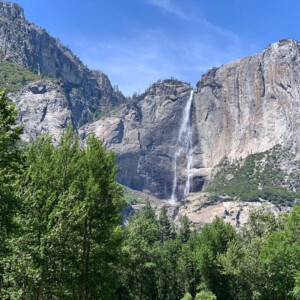
15 The voice of rejoicing and salvation Is in the tents of the righteous; The right hand of the LORD does valiantly.
16 The right hand of the LORD is exalted; The right hand of the LORD does valiantly.
17 I shall not die, but live, And declare the works of the LORD.
18 The LORD has chastened me severely, But He has not given me over to death.
19 Open to me the gates of righteousness; I will go through them, And I will praise the LORD.
20 This is the gate of the LORD, Through which the righteous shall enter.
21 I will praise You, For You have answered me, And have become my salvation.
We need to remember that Psalm 118 is the sixth psalm of the Hallel section of psalms in the Jewish hymn book. It is also sandwiched in between the shortest psalm and the longest psalm in the Book of Psalms. It is considered the middle chapter of the Bible and contains the middle verses of the Bible. It is associated with the Passover celebration as the Jews remembered their deliverance from Egypt by the “right hand of the LORD”.
Most Bible scholars seem to agree that these Hallelujah psalms are also very much associated with the LORD’s deliverance of the Jews out of the captivity in Babylon and allowed to go back to Jerusalem and rebuild the temple, the city, and the walls around it, which you can read about in the Books of Ezra and Nehemiah. We don’t know who the specific writers of these psalms but whoever they were they all wanted to lift up Jehovah and encourage God’s people to worship and praise the Him for His mercy, love, faithfulness, and deliverances!
Even though the people had been allowed to go back to their homeland after the captivity they were still facing tremendous opposition by those who hated them and many challenges in rebuilding the temple and the walls. Every day they needed encouragement and God’s help to accomplish their task and finished the work before them. This sounds like what we face as believers today in our world. In verses 1-4, the people were encouraged to give thanks to the LORD at all times, and so should we. In verses 5-14, they were exhorted to trust the LORD in every crisis, and so should we. Now in verses 15-21, they are instructed to glorify the LORD after every victory, and so should we.
When the foundation of the temple was laid in Ezra 3:11-13, it says, “And they sang responsively, praising and giving thanks to the LORD: "For He is good, For His mercy endures forever toward Israel." Then all the people shouted with a great shout, when they praised the LORD, because the foundation of the house of the LORD was laid…. Yet many shouted aloud for joy…. for the people shouted with a loud shout, and the sound was heard afar off.”
Years later when the walls of Jerusalem were finished in Nehemiah 12:43 they also rejoiced and glorify God. “Also that day they offered great sacrifices, and rejoiced, for God had made them rejoice with great joy; the women and the children also rejoiced, so that the joy of Jerusalem was heard afar off.” They came together to worship corporately. They literally had two choirs that marched around the city walls and met in the middle at the temple to worship, offer sacrifices and praise the LORD.
I know there are many people who are not physically able to attend church because of sickness, age, and health issues and I’m sure God understands that. But if we are physically able, we should regularly come together with God’s people to rejoice, worship and glorify the LORD. Over the years, I have found that when I visit shut-ins in their homes or nursing homes, they express that they would give anything to be in church on Sunday with God’s people enjoying corporate worship.
Sure, you can worship the LORD anywhere you are, but the pattern in Scripture in both the Old and New Testament is that God’s people always gather on a regular basis to glorify and worship the LORD. And this is what we will do for all eternity in heaven. We are only preparing for that time now!
God bless!
More Episodes
 2024-09-16
2024-09-16
 2024-09-15
2024-09-15
 2024-09-14
2024-09-14
 2024-09-13
2024-09-13
 2024-09-12
2024-09-12
 2024-09-11
2024-09-11
 2024-09-09
2024-09-09
 2024-09-07
2024-09-07
 2024-09-06
2024-09-06
 2024-09-05
2024-09-05
 2024-09-04
2024-09-04
 2024-09-03
2024-09-03
 2024-09-02
2024-09-02
 2024-09-01
2024-09-01
 2024-08-31
2024-08-31
 2024-08-30
2024-08-30
 2024-08-29
2024-08-29
 2024-08-28
2024-08-28
Create your
podcast in
minutes
- Full-featured podcast site
- Unlimited storage and bandwidth
- Comprehensive podcast stats
- Distribute to Apple Podcasts, Spotify, and more
- Make money with your podcast
It is Free
- Privacy Policy
- Cookie Policy
- Terms of Use
- Consent Preferences
- Copyright © 2015-2024 Podbean.com






